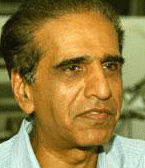
Your company marks its modest beginnings 2 decades back in a small premise at Kampala, in the sector of paper products, where today, it is the largest printed paper product solutions provider of the Country. What story goes for your niche in textile business?
Some time in March 1996, we took over the former Government parastatal then known as Nyanza Textile Industries Limited (NYTIL). We had a false start as the assessment of the state of the machineries had been totally wrong. We embarked on the journey to scrap and modernize the mill. On the coming into force of the AGOA Law in the USA, we tried a quick shot on this. Still, the land locked nature of Uganda edged us from competition as the logistical aspects were just not adding up. Then, strategy changed to high value organic made-ups and or knits to avoid undue competition with China or India on price. This has clicked so far. Above that, cognizance was made of the absence of largely scale capacity to supply institution uniforms to especially the Armed Forces and other Government departments like Hospitals and Wild Life Authority. This prompted the investment into a modern garmenting facility to explore the potential. Today, this segment contributes at least 25% of turn-over.
Uganda is a basically an agriculturalist country; how is it established in arena of textile and clothing? In your view, how is this industry moving on the course of present time?
Textile industry is on the move. Cotton is abundant and more than 80% of the cotton is still exported raw. This has prompted the Government to come up with a comprehensive Textile Policy packaged along the lines of Asian textile policies that emphasize local value addition and consumption through mandatory public sector purchase. This should turn around the sector in the medium term period.
What all are core competencies of Nytil (Picfare Group)?
Speed to market guaranteed by excellent machinery and world class human resources. The combination of the two invaluably makes it possible to service any order.
How do you see potential of organic-cotton textile and garments world over?
In the immediate future, the trend is not great due to the global financial crisis. However, the meltdown is expected to ease in a maximum of 18 months and the boom shall happen as was before the crisis.
Import of cheaper second-hand clothes has always been accused for undercuts in local textile production. What is your expression on this issue? What ‘Do’s’ would you suggest to the policy makers?
The East African wide strategy is minimum floor price legislation below which you cannot declare. Given that yarn and lint are internationally uniformly priced; working backwards to establish minimum dutiable values is what policy makers have agreed to do in East Africa to advert the unfair trading practices characteristic of the textile market.
Under its new marketing drive, Picfare Group had also expressed about its wish on opening stores/showrooms in Kampala to create one-stop centres for clothing needs. What rationale is associated to ‘going retailer’? Any plans in conformity?
The Group launched the plan alongside the Freedum re-branding campaign in July 2008. This was with the view to segmenting the market. For many years, the market associated the company with mass market supplies. On the launch, Freedum branded outlets were established to avail ready products for the middle class consumer in Kampala and the Region who appreciates branded products.
Can you please apprise our millions of global visitors more about SRNL - CHOGM tie up? How is Nytil associated with CHOGM?
CHOGM was and is still the major once-a life time event that happened in Uganda in 2007; when Heads of States and Governments from the Common Wealth were in Kampala for the Summit while top business gurus in Common Wealth met during the Business Forum. SRNL was a key player in the preparations and is proud to having produced and supplied materials from which an associated local designer, CHUI Arts made curtains, Table Cloth, Uniforms for the accredited hotels. Beyond that, the company clothed the Armed Forces with the memorable White Uniforms for the Police, especially.
How do you render your corporate social responsibilities?
As a responsible corporate citizen, the company is proud to be associated with three main things. One is the Uganda Medical Camp that saw some 7000 under privileged Ugandians access world class medical services at Njeru, near the factory fully sponsored by the company in collaboration with the Rotary Club of Jinja. Second, is the annualized School Badminton. This has enabled growth and development of the game in Uganda. Lastly, is the revival of education support for the under privileged children in Northern Uganda owing to the gruesome 20 years war. This has seen thousands go back to school after the war, which would have delayed tremendously but for the provision of school uniforms.
#######
Published on: 15/06/2009
DISCLAIMER: All views and opinions expressed in this column are solely of the interviewee, and they do not reflect in any way the opinion of Fibre2Fashion.com.